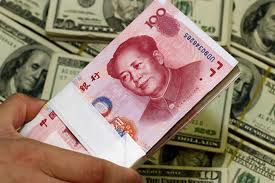Regardless of their shades, dictatorships universally worship might. For this fundamental reason, the precarious existence of every revolutionary regime rests on two essential criteria – veneration of those who command power and faith in their ability to perpetuate the status quo. Having attained absolute power by force in 1949, the Communist Party of China had governed the most populous nation on earth by the myth of the infallibility of either a single individual or a seemingly homogeneous leadership. For almost three decades, the centralization of political, economic, social and cultural powers by an inexperienced, incompetent and self-appointed minority had resulted not only in political destruction and economic ruin, but also in pervasive corruption and immorality.
The onset of the Deng Xiaoping era in the late 1970s of “reform and opening to the outside world,” had created the People’s Republic of China’s so-called economic miracle, but had left the concentration of powers in a small number of national and regional leaders practically intact. Thus, his vision of developing the moribund economy to be “rich and strong,” had become the ultima ratio of the questionable legitimacy of the Communist Party of China. Predictably, Deng’s brand of communism had led to an enormous concentration of wealth in the party and its leaders and a parallel subordination of the people to the greed, avarice and even lawlessness of political dynasties.
Like all one-sided visions, the People’s Republic of China’s exclusive focus on economic growth to the detriment of political modernization, had had both its strong and weak dimensions. In spite of impressive export earnings, spectacular construction projects and sizable foreign investments in the last three decades, exports had declined perceptibly, domestic growth had slowed from over 10% to 6.7%, foreign investments had fallen to record low in 2011, Chinese GDP per capita had stagnated at $8,382 in PPP terms ($5,414 in nominal terms), and official corruption had reached staggering proportions. On the political front, the Bo Xilai scandal had rocked the very upper echelon of the Communist Party of China and had given the lie to the myth of the homogeneous and meritorious leadership. The real story of the demise of the “prince of Chonqing” is not his abuse of power that had bordered on thuggery and outright criminality, nor his wife’s murderous arrogance, but a political life and death struggle among the top leaders for the future of the country’s political and economic direction.
Under these trying economic circumstances, political uncertainties and public disgust, members of the Communist Party of China are preparing for their 18th Congress, a five-yearly exercise in illusionary public relations. Presumably in October or November of this year, the delegates, carefully vetted on several levels, will convene to select from an already finalized list a new central committee and subsequently rubber stamp a new Politburo of some twenty-five members. It is also rumored that Xi Jinping, the current Vice President and the scion of a prominent communist dynasty, will replace the seating President, Hu Jintao. His deputy, Li Keqiang, will succeed Wen Jiabao, the current prime minister.
Remarkably, the pre-Congress period had been devoid of airing new ideas, of defining aspirations and hopes, and of displaying even a modicum of official or public enthusiasm. Combined with the burgeoning political and economic challenges, such dangerous apathy could only lead to tragedy. Moreover, political and economic stagnation would only cement the status quo in which official corruption is rampant and state owned and backed enterprises crowd out purely private businesses. Indeed, the impossibility of continuing to grow the economy without relaxing the dictatorship’s grip on political power and the economy would soon create a situation in which the absolute rule of the party could not be maintained any longer.
Realistically, no significant changes could be expected from the incoming party leadership. Political as well as economic strategies are already in place for the next three years. Any major deviation from the policies set by the outgoing leadership would risk serious disagreements and even renewed power struggles between the old and the new leaders and their adherents within the party, in the military and inside the security organs.
Presently, the leaders of the Communist Party of China are hopelessly out of touch with reality. The oppressed people of this vast country sense the confusion and the paralysis of the dictatorship. Historically, confusion and paralysis had always created a power vacuum in China. In a country where social services in the rural areas are almost non-existent and in the cities insufficient, the economic downturn would result in mass poverty. Reform ideas developed by the People’s Bank of China, the equivalent of the Federal Reserve, the World Bank and a government think tank called the Development Research Centre in Beijing that foresee a ten-year timetable for the gradual liberalization of the economy, especially the country’s capital markets, would never be implemented in the current political context.
In view of all these trends, facts and challenges, the new leaders of the Communist Party of China are condemned to certain failure. Neither the economic growth of the past thirty years, nor the empty slogans of nationalistic-populism would spare China the catastrophe of another revolution and the daunting task of building a new, more equitable and democratic nation. Oppressed by a multitude of vested interests and handicapped by the lack of organized opposition, would the Chinese people finally attain these objectives?
For China’s sake, for the wellbeing of the Chinese people and the security of the rest of the world, the answer must be in the affirmative.
____________
A version of this article was published in the Washington Times Commentary Section.
